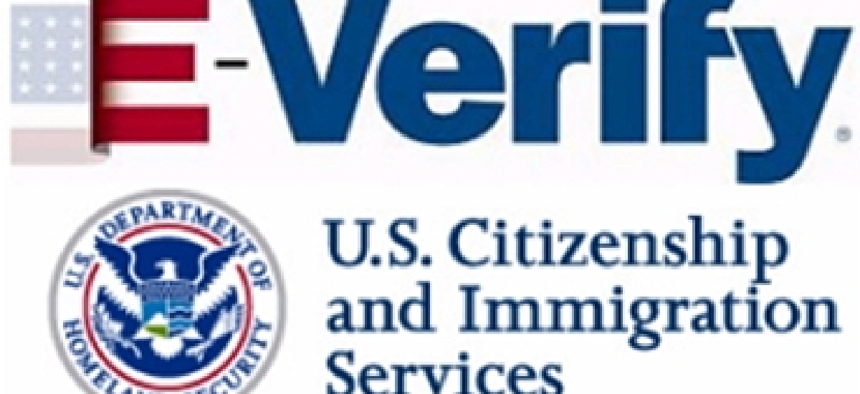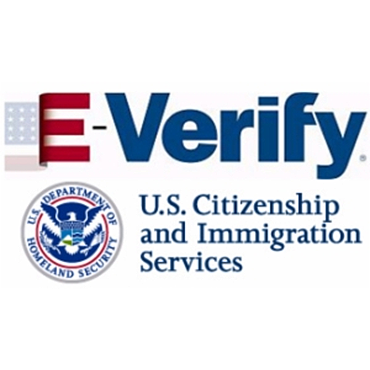E-Verify shuttered during shutdown

The system employers use to ensure their employees are legally entitled to work in the U.S. will be unavailable until the shutdown ends.

Although U.S. Citizenship and Immigration Services continues to process green card and citizenship applications along with a host of other immigration paperwork through the shutdown, one of its most visible functions has gone dark.
E-Verify — the service that allows employers to voluntarily verify U.S. citizenship status for new hires -- won't be available until funding is restored, according to CIS officials.
E-Verify is not available because it is the only operation at the Homeland Security Department component funded by an appropriation, said CIS spokesman Bill Wright. The agency brings in enough in fees — about $3.1 billion — from immigration applications, petitions and other functions to otherwise support itself.
E-Verify compares information provided by new employees on their I-9 Employment Eligibility Verification forms against government records to confirm their eligibility to work legally in the United States. As a result of the shutdown, the agency said employers won't be able to use any of the system's functions, which include enrolling companies in the program, verifying employment eligibility, viewing and taking action on cases and running reports.
A notice on CIS's website posted Oct. 1 said as a result of E-Verify's closure, employees won't be able to resolve pending tentative nonconfirmation rulings until after the shutdown. If the information provided by an employer for an employee's E-Verify check matches up with government records, the potential employee receives an "employment authorized" response from E-Verify. If the information provided doesn't match up with government records, the system issues a tentative nonconfirmation ruling and the employee gets an opportunity to resolve the problem.
CIS said it has suspended the "three-day rule" for cases affected by the shutdown and would provide additional guidance for employers once it reopens. The rule requires employers to have employees fill out and return their I-9 forms within three days of their first paid day on the job.
Although participation in the service is voluntary in most places, some states have incorporated E-Verify checks into state employment law. All federal contractors have to participate.
The Atlanta Journal Constitution reported Oct. 1 that taking E-Verify offline could be problematic for Georgia, because state law requires private employers with more than 10 workers to use the program. Additionally, the paper reported that all city, county and state government agencies in Georgia require contractors to use the program.
Arizona also requires employers in the state to run new hires' names through the system. Reports in the Tucson Sentinel on Oct. 1 quoted an employment lawyer who said although the process was murky in light of the closure, but employers would still be able to hire new workers. The checks have to be done after a worker is hired, the lawyer said, and until a "non-confirmed" notice is received from E-Verify, new hires are able to work.
NEXT STORY: Is FISMA why NSA influenced NIST?


